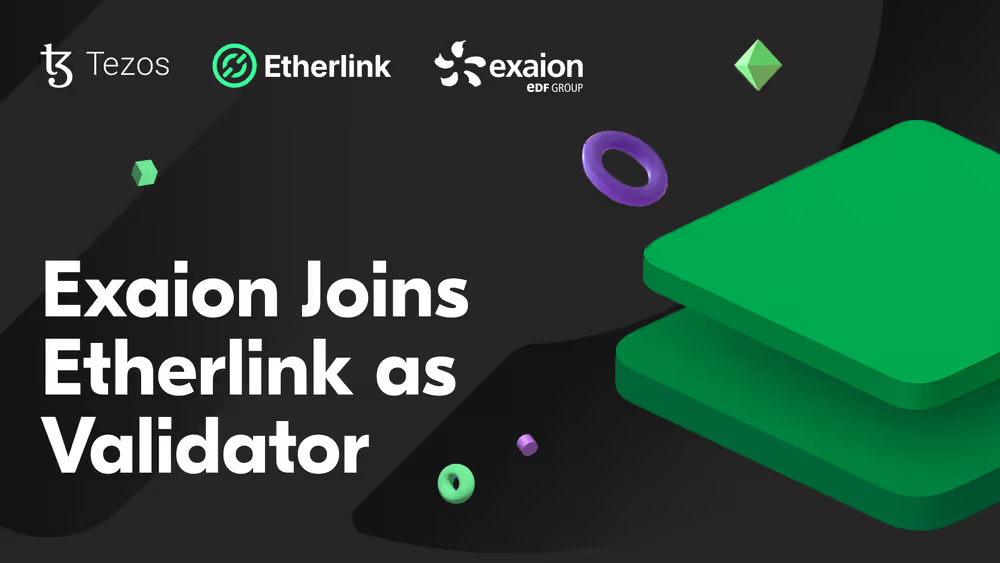Exaion Joins Etherlink as Validator: A Different Kind of Signal for Tezos
Exaion’s move suggests Etherlink is drawing attention beyond crypto’s usual suspects.
3 minute read

Most validator news comes and goes. But it’s worth noting when a company owned by one of the largest energy providers in Europe steps in. Exaion, backed by France’s EDF Group, isn’t chasing trends. It’s known for testing infrastructure that lasts. Their involvement suggests Tezos draws interest outside the usual crypto crowd and from institutions that aren’t just here to speculate.
Exaion is already a baker on Tezos and now Exaion is validating Etherlink, the Ethereum-compatible Layer 2 built with Tezos Smart Rollups. These rollups post transaction data to the Tezos mainnet, giving Etherlink scalability and accountability. Validators like Exaion confirm transactions and publish commitments, which is essential to keeping the rollup honest. It’s a technical job and a signal: they’re backing it with actual infrastructure.
Etherlink went live in late 2024 and has spent the months since bringing on early developers and projects. It’s still early, and there are plenty of unknowns: how it will scale, what kinds of apps it attracts, and whether it can hold attention in a crowded field. Exaion joining doesn’t answer those questions, but it does raise a new one: who else is paying attention?
Exaion isn’t new to Tezos. It started running a corporate validator in 2020, one of the first to do so. Its infrastructure spans Europe and North America, supporting data centers built for energy efficiency. Joining Etherlink doesn’t look like a test run; it seems like a step forward.
“By joining Etherlink as a Smart Rollup node operator, we can play a role in maintaining network security while providing a high-quality digital service to anyone using the chain,” said Fatih Balyeli, CEO and co-founder of Exaion. “We’re proud to continue supporting Tezos, an example of French technological ingenuity that aligns with our own mission.”
The timing makes sense. Etherlink is still early, but traction is building. Projects like Spiko and Midas are already live, and others are testing use cases ranging from tokenized assets to more affordable contract deployments. The tools are in place. What’s still needed is proof that they’ll hold up over time.
Exaion’s presence helps signal stability when the network is still proving itself.
“Rollup security relies on the presence of at least one honest validator,” said Arthur Breitman, co-founder of Tezos. “So the more reputable parties validating the Etherlink rollup, the more robust it is.”
The validator role might seem routine, but it reveals who’s taking this seriously.
With Exaion stepping in, Etherlink isn’t running on promises. It’s running on infrastructure.